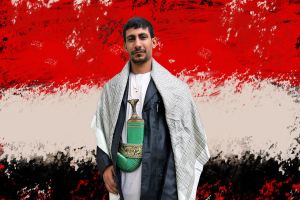
 By Venkatesh Raghavan*
By Venkatesh Raghavan*
Despite the recent truce offer ushering in a relatively peaceful ambience in Yemen the roles of both state and non-state players involved in the more than decade long strife continue to be a cause of worry due to the track record of previous peace accords. From a geopolitical perspective, there seem to be no prospects of any permanent solution emerging soon, as both the Sunni majority allies, namely Saudi Arabia and UAE are continually at loggerheads with the Shia-majority state of Iran over Yemen’s internal strife.
While Iran is reportedly backing the Houthi rebels who have garnered control over the northern territories of Yemen, both Saudi Arabia which is currently offering asylum to Yemen’s president in exile, Abdrabbuh Mansour Hadi and the neighbouring UAE are keen on ensuring that the Iran-backed Houthi rebels are effectively countered by the consolidation of the power bases among the state and other non-state players involved in the ongoing skirmishes. The non-state players include southern separatists also called Herak or Southern Resistance, Sunni Islamists and a fractured part of the Al Quaeda group that is also aligned to the anti-Houthi groups.
The holy month of Ramadan with the advent of April 2022 has witnessed the ushering in of a two-month peace accord among the warring factions on Yemeni soil, namely the Houthis and the anti-Houthi forces, albeit it seems to be a brittle arrangement that is facing uncertainty on its scope of being extended. The global observers including those from the UN preferred to err on the side of caution in exuding any optimism about the current peace endeavour. They strongly felt that the warring factions named were still at loggerheads and the situation remained tense despite being peaceful on the ground.
Also read: After truce, Yemen to prevent grave violations against children
Dwelling on the fact that the peace efforts that were attempted after formal consent to the Stockholm Agreement way back in 2018 failed to make much headway, the observers sounded that it would be prudent to adopt a wait and watch approach. The warring Yemeni factions have failed in implementing the provisions of the Agreement that included the exchange or release of imprisoned people, numbering more than 15,000 besides scaling down violent conflicts in strife-torn cities like Taiz. Anxiety looms large in the face of mounting friction among the regional Arab powers that might cause a prolonged humanitarian and economic crisis for the Yemeni citizens, with upward of 75% of the national population suffering from acute poverty and starvation.
Following an acute escalation of Saudi Arabia backed airstrikes and retaliatory missile attacks from the Houthis in the early months of 2022, the fate of the strife-torn state witnessed an unexpected reversal, when the coalition forces and the Houthis arrived at a two-month-long cease-fire in early April. The cease-fire bid goes down as the first of its kind in at least half a decade that has lapsed. The latest truce effort has been put in place by a recently formed governing council that has aimed at consolidating all the anti-Houthi factions. The council is hopeful of facilitating the implementation of what it eyes as “inclusive negotiations.”
Interestingly, the Houthi rebels had mounted their frequency of airstrikes on both UAE and Saudi soils that caused grave concern among the Western allies, including Germany, France, the UK and the USA before the truce agreement fell into place. Geopolitical experts opined that a multi-lateral cooperative front that includes all the warring factions or stakeholders on Yemeni soil can prove to be much more effective for ushering in an era of peace and stability in the region than trying to resolve the differences between two sides indulging in a proxy war on Yemeni turf.
The current state of affairs prevailing in one of the poorest states of the Arab belts owes its genesis to the civil strife dating back to 2011 when the then-President Ali Abdullah Saleh bequeathed his position to make way for his long-standing deputy, Abdrabbuh Mansour Hadi owing to a popular uprising that sprung up in Yemen. Unfortunately, Hadi’s government had a very short honeymoon period as the country’s economic problems kept mounting and Jihadi forces from within the country sought to usurp power and worked towards destabilizing Yemen’s unity. This wreaked havoc as many from Yemen’s armed forces too rebelled and sought to switch their loyalties to their former President Saleh.
Just before the recent truce call, the civil war in Yemen had intensified with its government allies from Saudi Arabia and neighbouring UAE inflicting air strikes on both rebel groups and their sympathizers. The Houthis (rebels) who had taken control of the northern portion of the country were hitting back with equal brutality. They were using drones and ballistic missiles that targeted both oil installations and civilian populations in UAE and Saudi Arabia.





